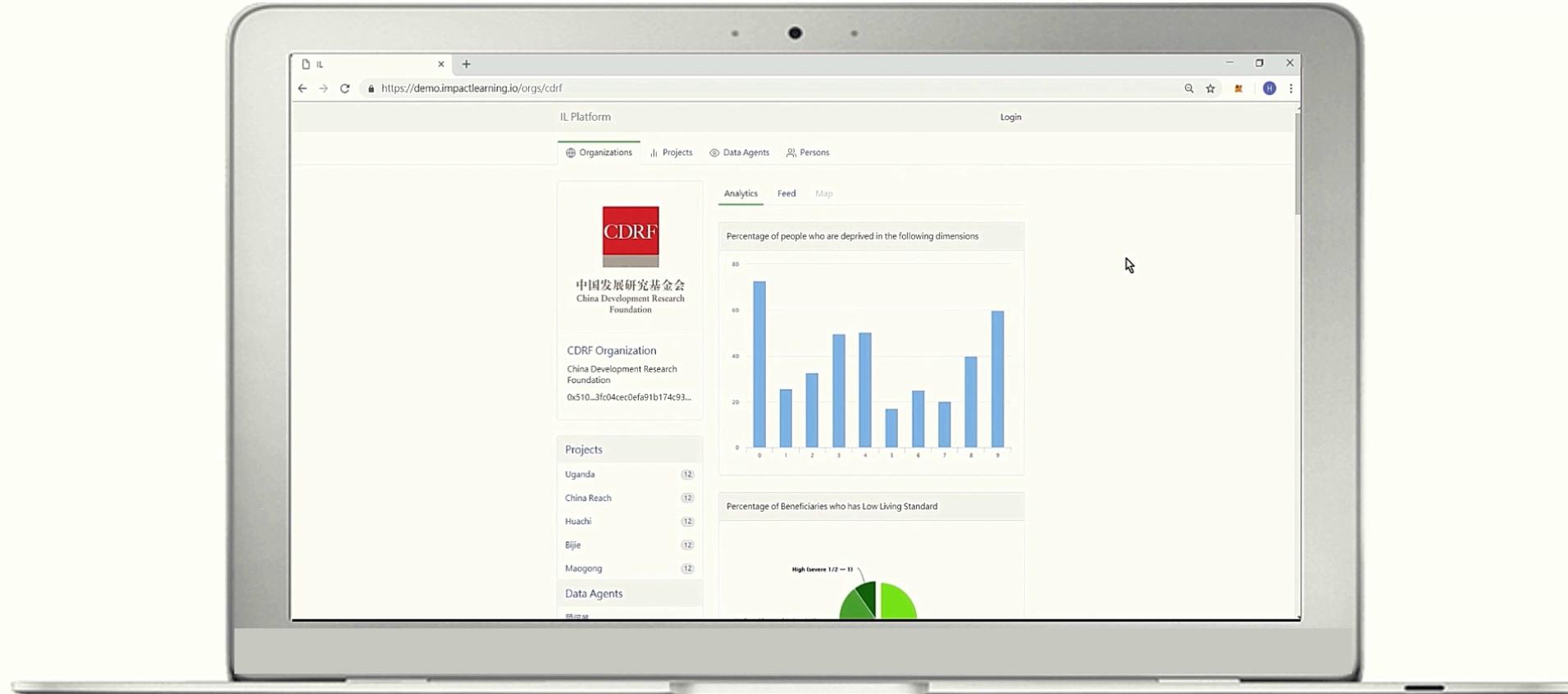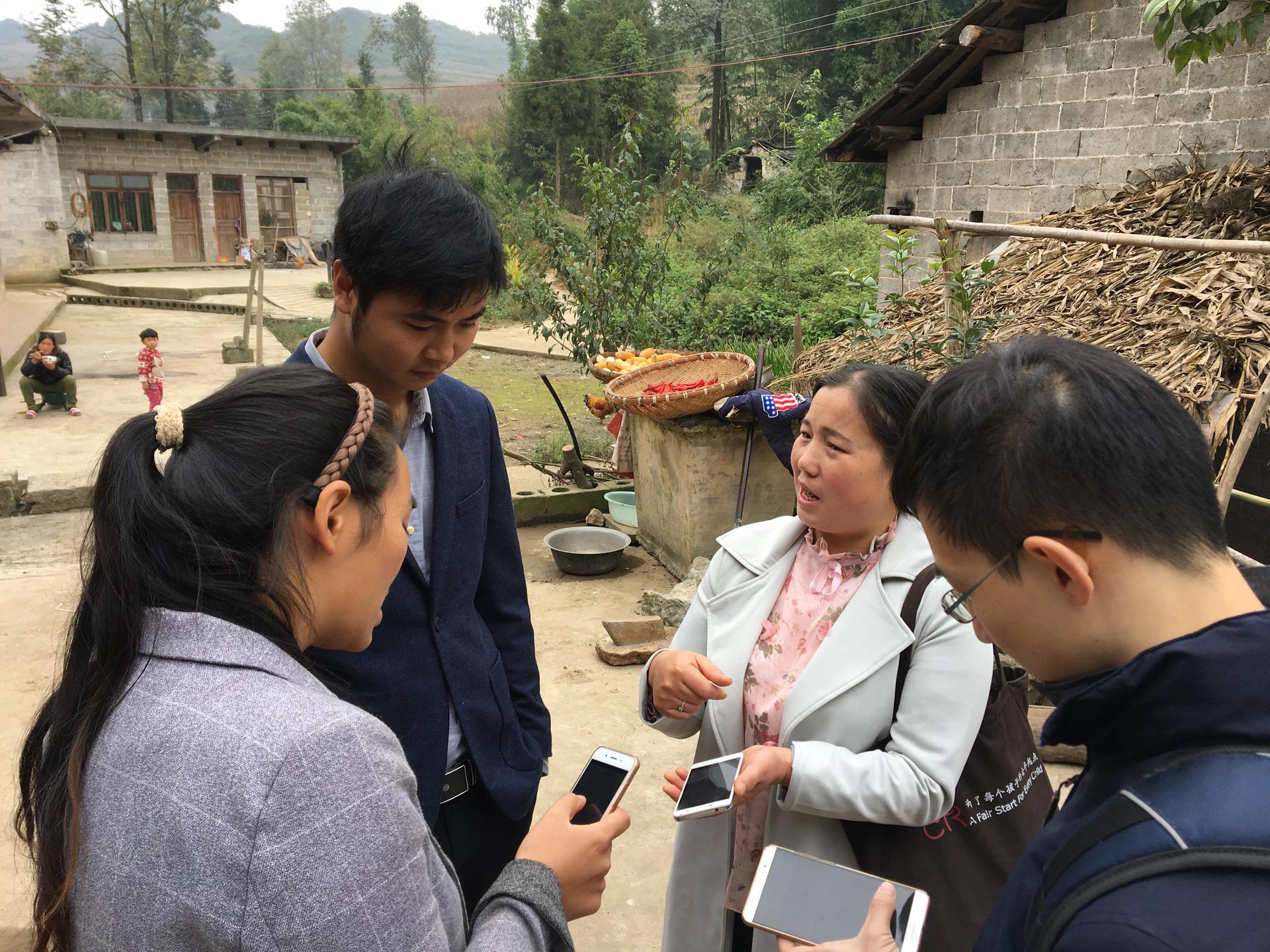Cloud
Analytics for Sustainable Decisions
Understanding last-mile data is not just about analyzing raw data, but understanding contexts for how fluid dataflow is created in ways that fit developing regions – appropriately meeting data literacy levels of beneficiary communities that make data valuable for all stakeholders; investors, projects, and beneficiaries alike. Our cloud platform, Impact Learning, provides solutions sensitive to frontline conditions to collect data while providing robust tools to analyze impact data.
For Social Finance solutions, we provide pre-investment due diligence tools to validate conditions on the ground, impact investment deal-structuring tools to set metrics and goals, and post-investment tools for monitoring and evaluation. For Social Development projects, we offer stakeholder management tools to send and receive actionable insights, machine learning tools for deeper discovery of positive or negative impacts, and frontline engagement tools that foster informative relationships with beneficiaries. For Frontline Communities, we offer tools for bi-lateral communication so that insights flow both ways, making data useful for beneficiaries and their networks, incentivizing authentic participation.
Stakeholder Relationship Management
track and communicate data insights for communities, programs, and investors
Problems Validation & Impact Discovery
leveraging data science strategies to look deeper into communities and project outcomes
Beneficiary Engagement Applications
mobile apps appropriately designed to work at varying data literacy levels in remote regions that may have limited or no network access
Impact Measurement & Analytics
tools that can incorporate a wide range of globally accepted metrics as well as creating lean data strategies
Computer Vision
leveraging ubiquitous presence of cameras to identify development levels and poverty indicators
Data Literacy Indexing
automated metrics for understanding what types of digital solutions can be most efficiently deployed in developing communities

China Development Research Foundation (CDRF)



Location: China
Project: Building data infrastructure for policy research serving impoverished communities in China
POC: Lv Mai (Director of CDRF), Mary Young (Director of Early Childhood Education Center)
Organization Description:
CDRF is a policy research foundation directly subsidiary to State Council of China. CDRF researches and proposes policies to China Central Government for poverty alleviation, education, healthcare and economic development. Projects under CDRF are funded by State Council, Bill & Melinda Gates Foundation, and the Ford Foundation. CDRF is the incubator of major public-private-partnership-based social development projects in China, such as nutrient poverty alleviation program in the last decade with 100M USD contracts per years for social service procurement.
Services from SZC:
Last-Mile Data Agent Digital Infrastructure (Oracle Marketplace)
Community currency engineering
Social finance smart contracts implementation, specify: N/A
User size:
up to 14,000,000 individuals from poverty regions in China
Other notes:
The work of SZC at CDRF is highly recognized by CDRF’s partners, including investment banks (UOB, Credit Suisse), government (Guizhou Education Ministry, Yunan Education Ministry, Central Disease Control Center), etc.
Project Concept Note:
Since 2017, SZC has been serving CDRF as their data management and impact data science partner to develop solutions to engage 7,000,000 end-beneficiaries all over China under programs of CDRF. SZC’s major contribution is to develop the last mile data solutions to digitize targeted poverty families and their relatives in remotes village. In 2017, SZC was invited to present in CDRF annual conference in Guizhou, with the whitepaper: AI an IA – a methodological discussion of data empowerment platform. The whitepaper, which was highly recognized by government officials and CDRF officials, was about implementing data devices and software for end-beneficiaries to build their data literacy and to allow them to participate in impact data collection and validation process.
In 2018, SZC introduced its blockchain technology, particularly the application decentralized identification (DID or a blockchain ID) as unique identifier for all children, visitors, guardians and other family members who participate in the data collection process. This technology set up the basic layer of human-driven network of data intelligence on blockchain (oracle marketplace), and it provides solutions to protect children identity and sensitive data, such as exploitation, abuse and family violence, etc. The basic idea of data architecture is as following,
On-chain data: need data, impact data, and identification data for impact measurement and impact data audition
Off-chain data owned by users: Personal data and project data (encrypted with private key and complying to “Rights to be forgotten”
Off-chain data owned by SZC: analytical data and big data
The project sets up the fundamental bilateral data flow mechanism for impact measurement in SZC’s software: Impact Learning (IL). With iO2 tokens as the data flow ledger unit, IL system is upgraded to further facilitate data flow between organizations, execution teams and end-beneficiaries.
The impact of creating DID for poverty regions community members is to create trackability in the impact measurement system for the Foundation to acquire data from 7,000,000 end-beneficiaries from the ground to measure long term impact, even though the beneficiaries are out of the programs of CDRF. Moreover DID as unique ID is also integrating all scattered database in CDRF’s database. These users, with iO2 DID, will permanently register on iO2 blockchain for iO2 oracle marketplace.